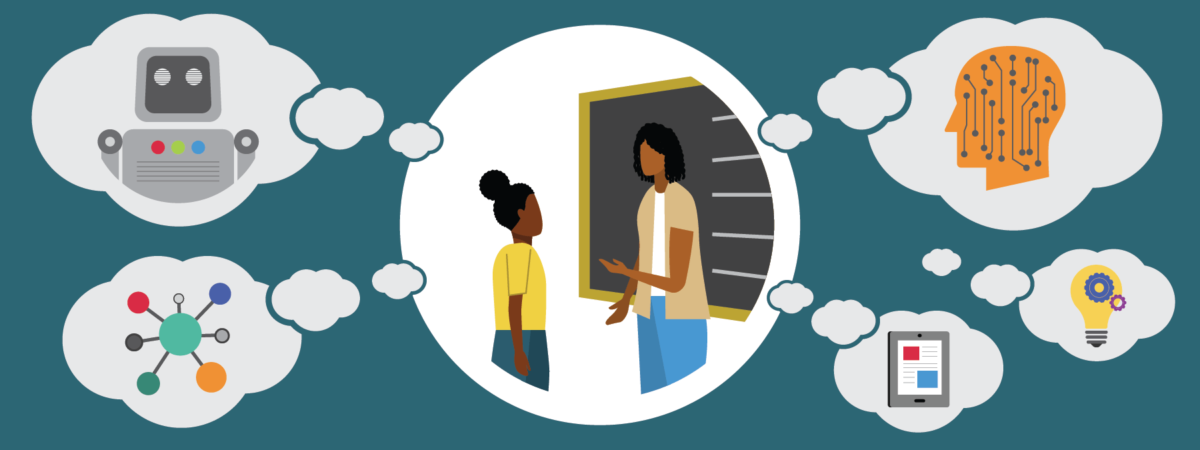
What should educators know about AI? This post provides an introduction and a set of resources to learn more about AI going forward.
The term “AI” is tossed around a lot and it’s hard to get computer scientists and experts to agree on a simple definition, but most will agree with this: AI lets machines make decisions and predictions. Some AI developers aim to make systems that can do things, like prepare food better and faster than humans, to replace the work of humans; while others want to make an AI system to work with and help humans. We have the latter view as we believe teachers are essential to education, and that AI should be used to better support them. For example, when a teacher has students use Grammarly to improve their writing, they’re using AI. The teacher is still there and the students could benefit from both the feedback from the AI system and the teacher.
One of the reasons why it’s hard to define AI is that it does different things and it takes many types of technologies and methods to create an AI system. AI systems need to be able to perceive, represent what they perceive in data, reason about it, and make decisions.
There are many ways AI works, but all of them involve using data. Data are units of information about people or objects that can be used by AI technologies. AI systems are trained with data. It is important to note that the data used to train AI systems can be biased for several reasons—sometimes because it is historical data that does not reflect what the world is actually like today. Getting unbiased data is a very hard problem that many are working to solve, but we are not there yet.
Technology often comes with ethical implications and AI is no different. There are several questions educators should ask and investigate before they adopt a product into a classroom, including:
When adopting AI for a whole school or district, there are many things to consider. The Ethical Framework for AI in Education, developed by The Institute for Ethical Al in Education, can be a good starting point for educators to review when they are selecting and adopting AI tools for use.
Here’s a list of resources to learn more about AI: